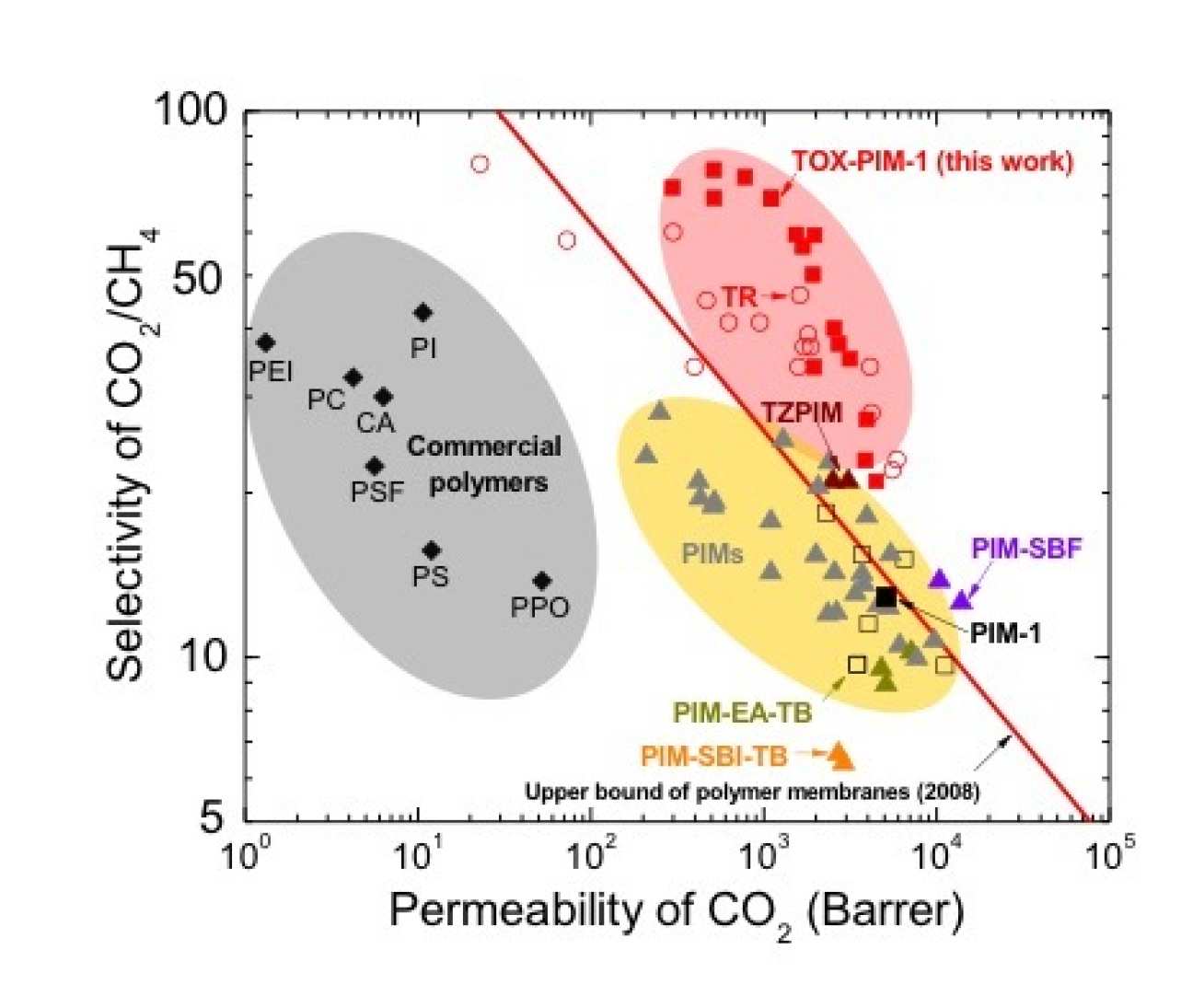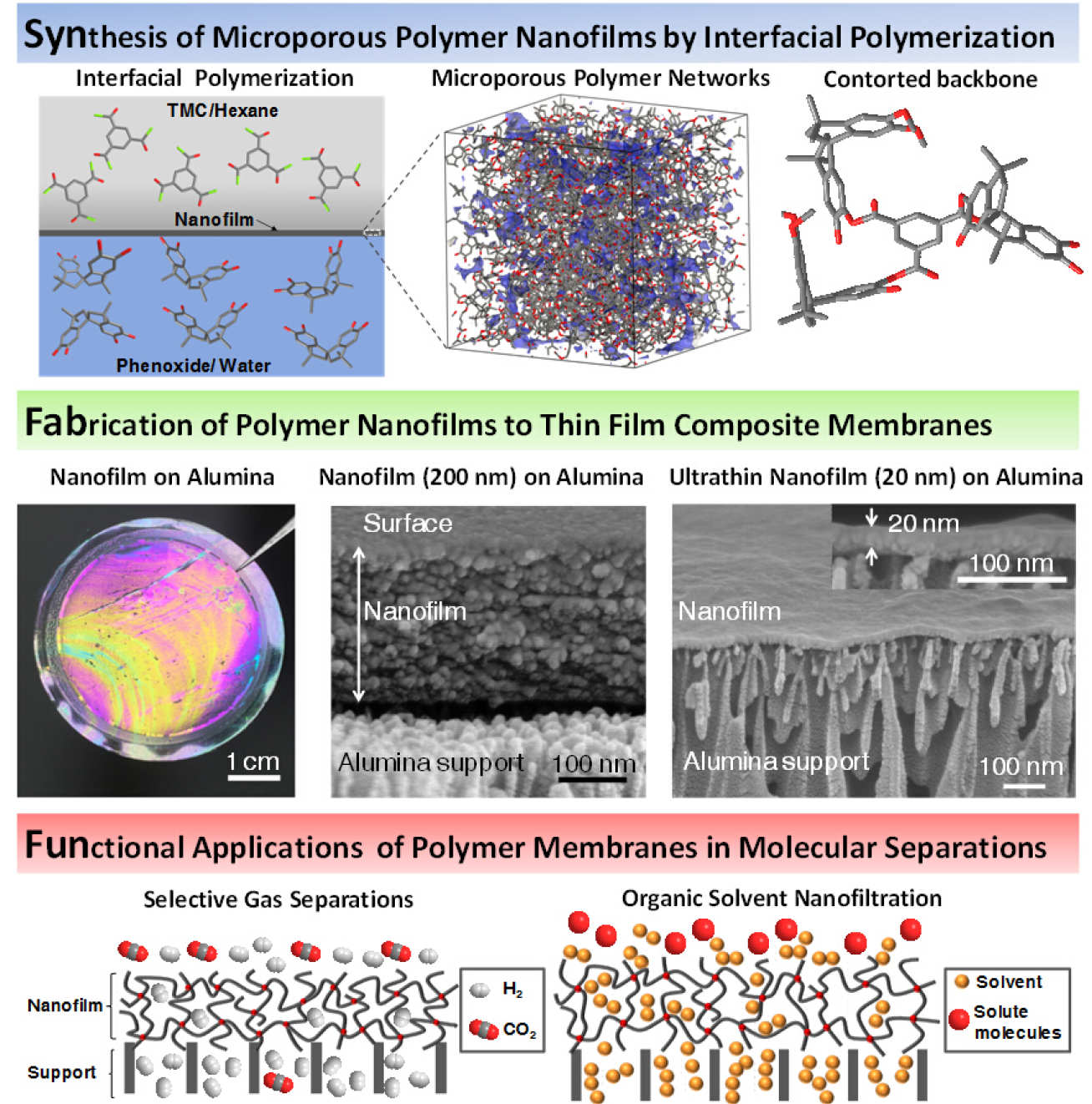Separation processes critically determine the efficiencies in chemical, energy and environmental processes, such as gas separation for large-scale energy and oil & gas industry (natural gas purification, CO2 separation, air separation, hydrocarbons separations in petrochemical industry, etc), chemical separations, and water desalination and purification. We fabricate novel microporous materials into sorbents and membranes for applications in adsorption and separations.
The EPSRC (Engineering and Physical Sciences Research Council) grant "SynHiSel" is a research project that focuses on developing selective membranes for various industrial applications. The goal is to create membranes that can selectively allow specific substances to pass through while rejecting others, which could have a range of applications across different industries. This work could lead to the development of new and innovative solutions for a variety of problems faced by industries today, and help to advance the field of materials science and engineering.
One of the primary areas of focus for the SynHiSel project is the development of energy-efficient separations. The goal is to create membranes that can be used to separate substances in an energy-efficient manner, potentially reducing the costs and environmental impact of various industrial processes. Additionally, the selective membranes developed as part of the synHisel project have the potential to be used in a range of energy applications, including the separation of gases and liquids, and electrochemical devices. These innovations could help to improve the efficiency and sustainability of energy production and help support the transition to a more low-carbon economy.

